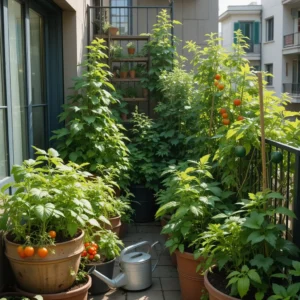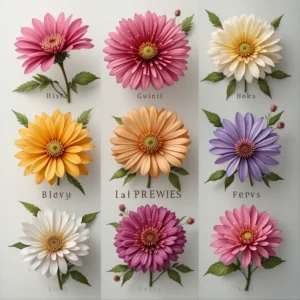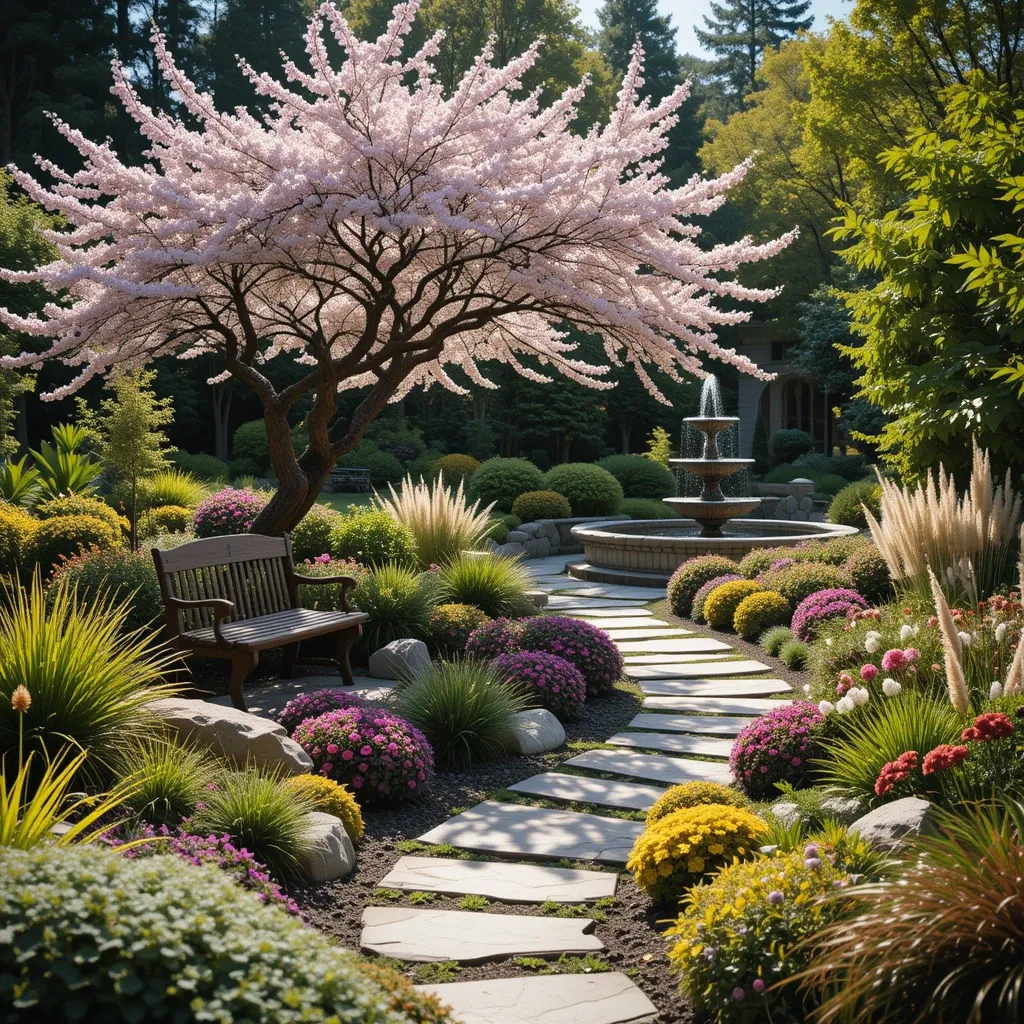
Designing a beautiful garden is both an art and a science. Selecting the right garden design plants for your space enhances aesthetics and contributes to a sustainable and functional outdoor area. Whether you are a seasoned gardener or a beginner, understanding the best garden design plants can help you create a visually appealing and thriving landscape.
In this guide, we will explore essential garden design principles, the best garden design plants for different types of gardens, and practical tips to maintain a flourishing garden throughout the year.
1. PRINCIPLES OF GARDEN DESIGN
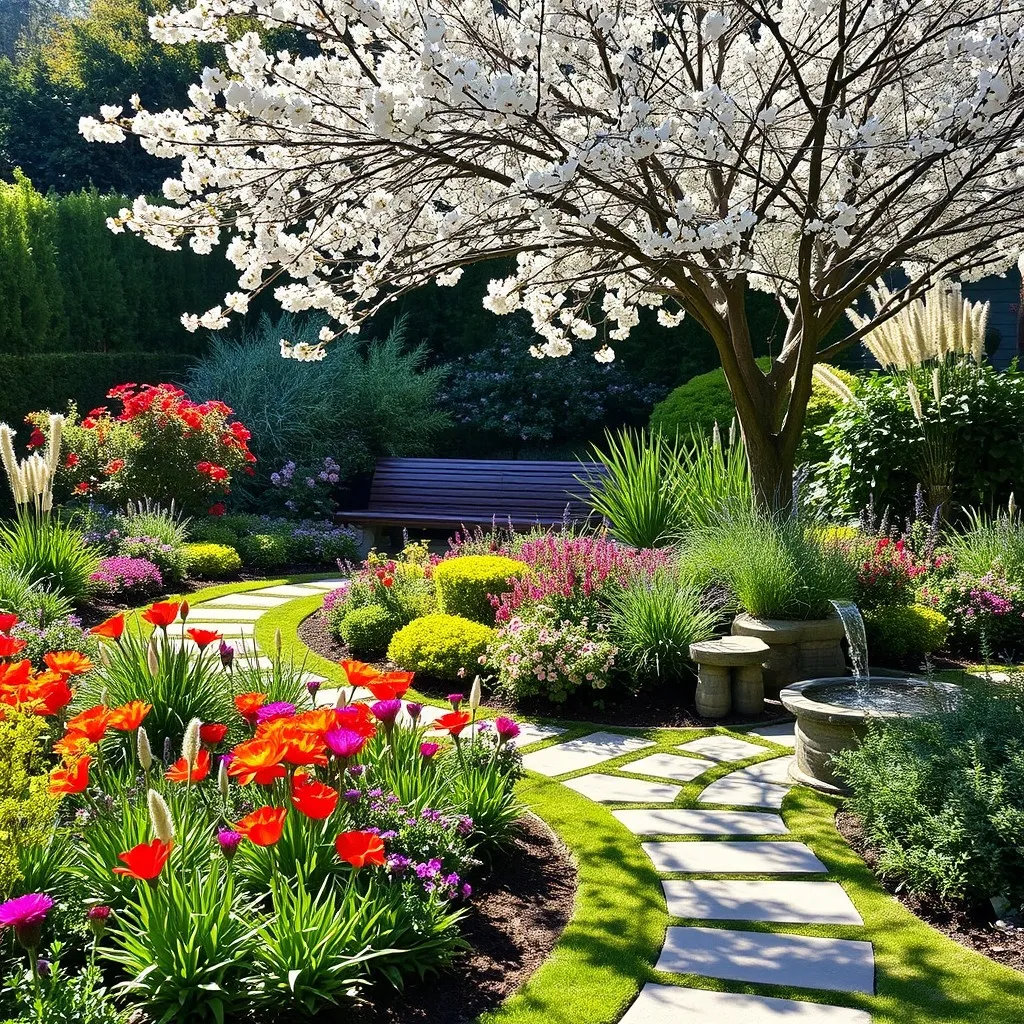
Before selecting plants, it’s crucial to understand the fundamental principles of garden design:
1.1 BALANCE AND PROPORTION
Balance in garden design refers to the visual harmony of plants and structures. Symmetrical designs create a formal and organized look, while asymmetrical designs offer a more natural and dynamic appearance.
1.2 COLOR AND TEXTURE
Using a combination of colors and textures enhances the depth and character of your garden design plants. Consider contrasting foliage and flowering plants to create visual interest.
1.3 FUNCTIONALITY AND SPACE PLANNING
A well-planned garden should be both beautiful and functional. Consider pathways, seating areas, and focal points such as fountains or sculptures.
1.4 SUSTAINABILITY AND MAINTENANCE
Choose garden design plants that thrive in your local climate and require minimal maintenance. This will ensure a lush, thriving garden with less effort.
2. BEST GARDEN DESIGN PLANTS

Choosing the right plants depends on your climate, garden style, and personal preferences. Below are some of the best garden design plants, categorized by garden type:
2.1 PERENNIAL PLANTS FOR A LONG-LASTING GARDEN
Perennials return year after year, making them an excellent choice for sustainable gardening.
- Lavender (Lavandula) – Beautiful purple flowers with a calming fragrance.
- Hosta (Hosta spp.) – Lush foliage perfect for shaded areas.
- Coneflower (Echinacea) – Drought-tolerant with bright, daisy-like blooms.
- Daylilies (Hemerocallis) – Hardy and available in various colors.
2.2 BEST SHRUBS FOR GARDEN BORDERS
Shrubs add structure and depth to your garden design plants.
- Boxwood (Buxus) – Ideal for hedges and formal gardens.
- Hydrangea (Hydrangea spp.) – Produces large, colorful blooms.
- Azalea (Rhododendron spp.) – Adds vibrant color in spring and summer.
- Spirea (Spiraea spp.) – A low-maintenance flowering shrub.
2.3 FLOWERING PLANTS FOR A COLORFUL GARDEN
Annuals and perennials bring life and vibrancy to any landscape.
- Roses (Rosa spp.) – Timeless and elegant with numerous varieties.
- Marigolds (Tagetes spp.) – Bright orange and yellow flowers that repel pests.
- Petunias (Petunia spp.) – Available in multiple colors and easy to grow.
- Daisies (Bellis perennis) – A cheerful addition to any flower bed.
2.4 LOW-MAINTENANCE PLANTS FOR EASY GARDENING
If you want a beautiful garden with minimal upkeep, consider these options:
- Succulents (Sedum spp.) – Hardy and drought-resistant.
- Ornamental Grasses (Miscanthus spp.) – Adds movement and texture.
- Ferns (Dryopteris spp.) – Ideal for shaded areas.
- Hostas (Hosta spp.) – Versatile and shade-tolerant.
2.5 BEST PLANTS FOR SMALL GARDENS
If space is limited, opt for compact plants that provide maximum impact:
- Dwarf Japanese Maple (Acer palmatum var. dissectum) – Stunning foliage in a small form.
- Miniature Roses (Rosa chinensis ‘Minima’) – Compact and colorful.
- Herbs (Basil, Thyme, Mint) – Useful and aromatic.
- Potted Plants (Geraniums, Fuchsia) – Perfect for balconies and patios.
3. THE IMPACT OF GARDEN DESIGN PLANTS ON YOUR OUTDOOR SPACE
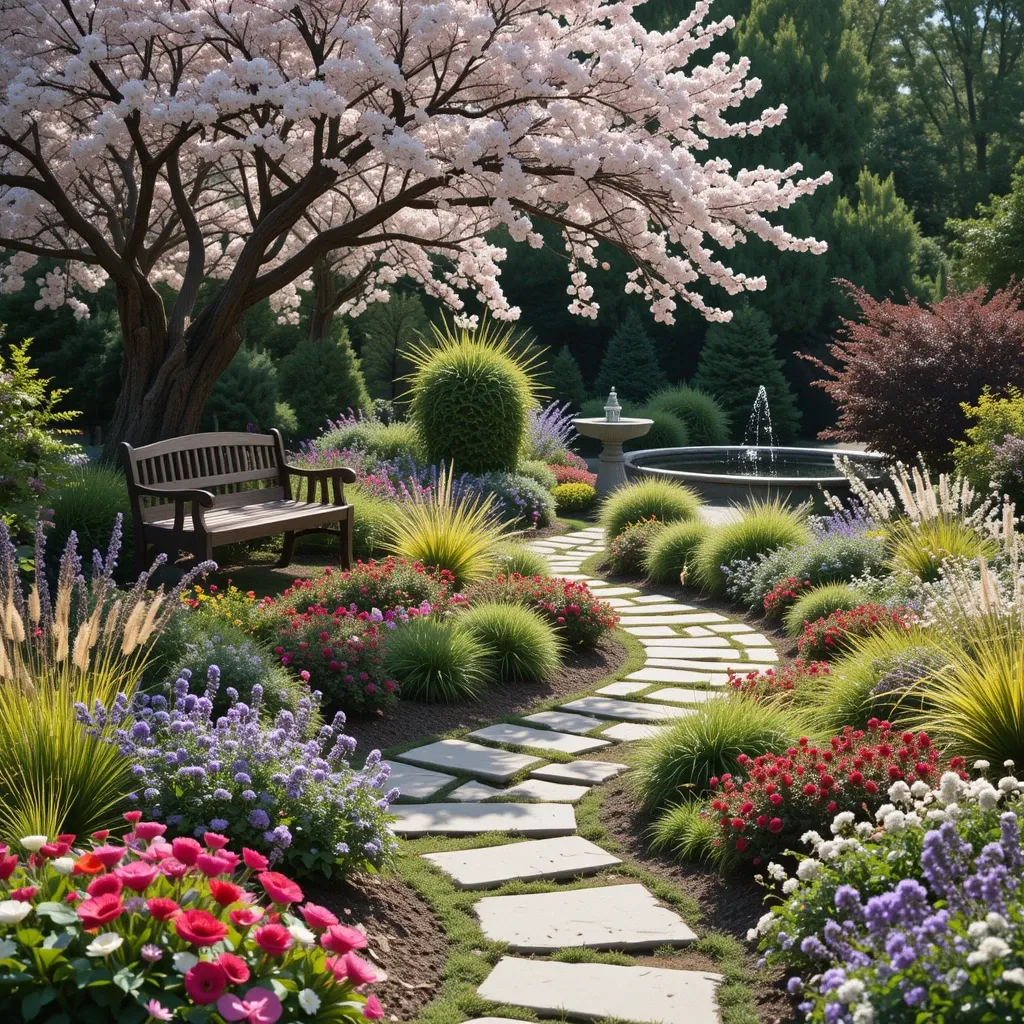
Selecting the right garden design plants goes beyond aesthetics. These plants play a crucial role in creating a functional and enjoyable outdoor environment. The right combination of garden design plants can:
- Enhance Visual Appeal: A well-balanced selection of flowering plants, shrubs, and greenery adds charm and beauty to any space.
- Improve Air Quality: Plants act as natural air filters, absorbing carbon dioxide and releasing oxygen.
- Increase Biodiversity: By incorporating a mix of native and pollinator-friendly plants, you can attract bees, butterflies, and birds, helping to sustain local ecosystems.
- Provide Shade and Privacy: Tall shrubs, hedges, and trees create natural barriers that protect your outdoor space from harsh sunlight and prying eyes.
- Boost Mental Well-being: Studies show that gardening reduces stress and promotes relaxation, making your outdoor area a true retreat.
By carefully selecting and arranging your garden design plants, you can transform your garden into a serene and functional oasis.
4. THE IMPACT OF PLANT SELECTION ON GARDEN DESIGN
Choosing the right plants is not just about aesthetics; it plays a crucial role in enhancing the surrounding environment. The plants used in garden design add a touch of natural beauty, help purify the air, and create a perfect space for relaxation. Additionally, plants contribute to ecological balance by attracting beneficial insects like bees and butterflies, which aid in pollination and promote the growth of other plants. When designing your garden, make sure to select garden design plants that suit the local climate and maintenance requirements to ensure a thriving, long-lasting landscape.
5. TIPS FOR MAINTAINING A THRIVING GARDEN

5.1 PROPER SOIL PREPARATION
Healthy soil is the foundation of a successful garden. Use compost and organic matter to enrich the soil and ensure proper drainage.
5.2 WATERING TECHNIQUES
Overwatering and underwatering are common mistakes. Water deeply but less frequently to encourage deep root growth. Drip irrigation is an excellent option for water conservation.
5.3 PRUNING AND DEADHEADING
Regular pruning keeps plants healthy and promotes new growth. Deadheading (removing spent flowers) encourages continuous blooming.
5.4 SEASONAL CARE
Each season requires specific maintenance:
- Spring: Plant new flowers, apply mulch, and fertilize.
- Summer: Keep up with watering and pest control.
- Fall: Prepare plants for dormancy and clean up debris.
- Winter: Protect delicate garden design plants from frost and cold winds.
Designing a stunning garden with the right garden design plants is a rewarding experience. By understanding garden design principles, selecting appropriate plants, and maintaining them effectively, you can create an outdoor space that is both beautiful and functional. Whether you prefer a low-maintenance landscape or a vibrant floral haven, choosing the right garden design plants will transform your outdoor space into a serene and inviting retreat.
